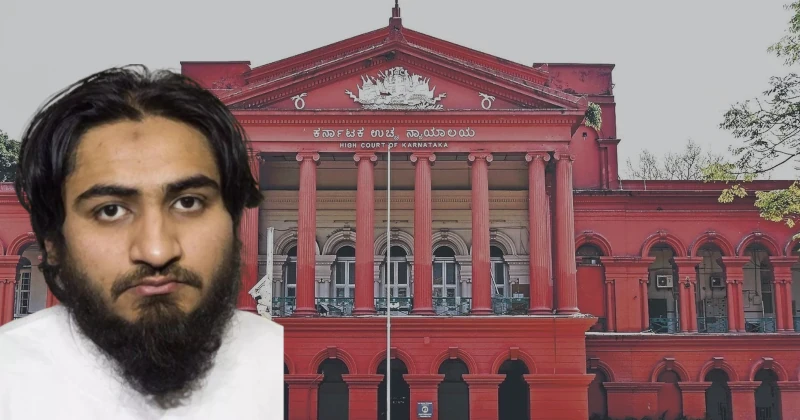
The Karnataka High Court has dismissed a petition filed by Dr. Sabeel Ahmed, an alleged member of the banned terrorist organization Lashkar-e-Taiba (LeT), seeking discharge in a case related to a 2012 conspiracy to assassinate prominent Hindu leaders, government officials, and journalists.
A division bench of Justices Sreenivas Harish Kumar and JM Khazi upheld the Special NIA court's order denying Ahmed's discharge plea under Section 300 of the Criminal Procedure Code (Cr.P.C.), which prevents double jeopardy.
The case originated from an FIR registered at the Basaveshwara Nagar police station in Bengaluru on August 29, 2012, under various sections of the Indian Penal Code (IPC), Arms Act, and the Unlawful Activities (Prevention) Act (UAPA). The investigation was subsequently transferred to the National Investigation Agency (NIA) due to the severity of the alleged offenses.
Ahmed and other accused individuals were charged with being part of a LeT-inspired terrorist group and plotting to kill prominent figures within the Hindu community.
Ahmed's counsel, Senior Advocate Kiran S. Javali, argued that his client had already been acquitted by a Delhi court in 2016 on similar charges and therefore could not be tried again for the same offenses. The defense cited the Supreme Court's judgment in Amritlal Ratilal Mehta v. State of Gujarat to support their plea of double jeopardy.
However, the NIA, represented by Special Public Prosecutor P. Prasanna Kumar, countered the arguments by stating that the charges in Bengaluru were distinct from those in Delhi. The prosecution emphasized that while the Delhi case pertained to raising funds for terrorist activities, the Bengaluru case specifically involved targeted killings of Hindu leaders. The prosecution further noted that the overlap of witnesses did not invalidate the charges, as the facts and offenses in the two cases were significantly different.
The High Court concurred with the special court's decision, highlighting that although there were similarities, the acts constituting offenses in the Delhi and Bengaluru cases were not identical. The court clarified that for Section 300 to apply, the accused must have been acquitted or convicted based on the same set of facts and offenses. In this instance, the facts constituting the offenses in Bengaluru were distinct from those in Delhi, despite some overlap and common witnesses.
The court affirmed that Section 300 of Cr.P.C. did not prevent the trial in Bengaluru, as the Special Court in Bengaluru had correctly differentiated between the two cases. It concluded that the impugned order was free of errors and dismissed the writ petition.
